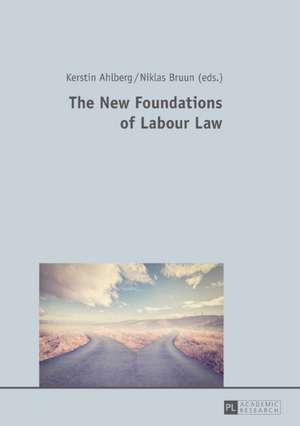The New Foundations of Labour Law
en Limba Engleză Hardback – 18 sep 2017
This book explores the challenges of globalisation and digitalisation to labour law and social security under three headings. The first, The changing foundations of labour law focuses on the law itself. Here the authors discuss how a changing political setting influences the very foundations of contemporary labour law. The contributions in the second section, Precarious work - the new normative model? , deal with the challenges that various new business models put to regulating working life and social welfare. The contributions in the final section, New forms of labour mobility , treat the difficulties related to the protection of workers who move over borders between countries and continents. The book is a contribution to the ongoing debate on the future of labour law.
Preț: 533.95 lei
Preț vechi: 693.43 lei
-23% Nou
102.18€ • 105.57$ • 84.100£
Carte tipărită la comandă
Livrare economică 20 martie-03 aprilie
Specificații
ISBN-10: 3631718500
Pagini: 276
Dimensiuni: 156 x 215 x 23 mm
Greutate: 0.48 kg
Ediția:Nouă
Editura: Peter Lang Copyright AG
Notă biografică
Cuprins
Challenges of globalisation and digitalisation - Especially issues related to precarious work the «gig» economy, labour migration - Domestic work - Fundamental rights - «Access justice» and non-discrimination law
